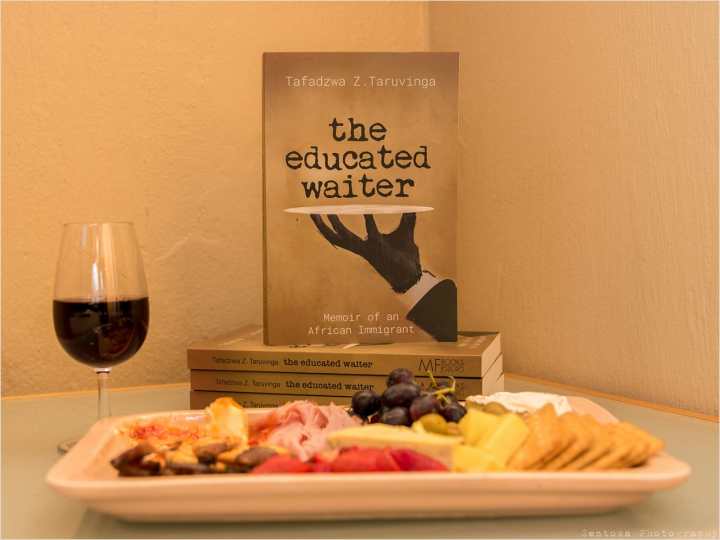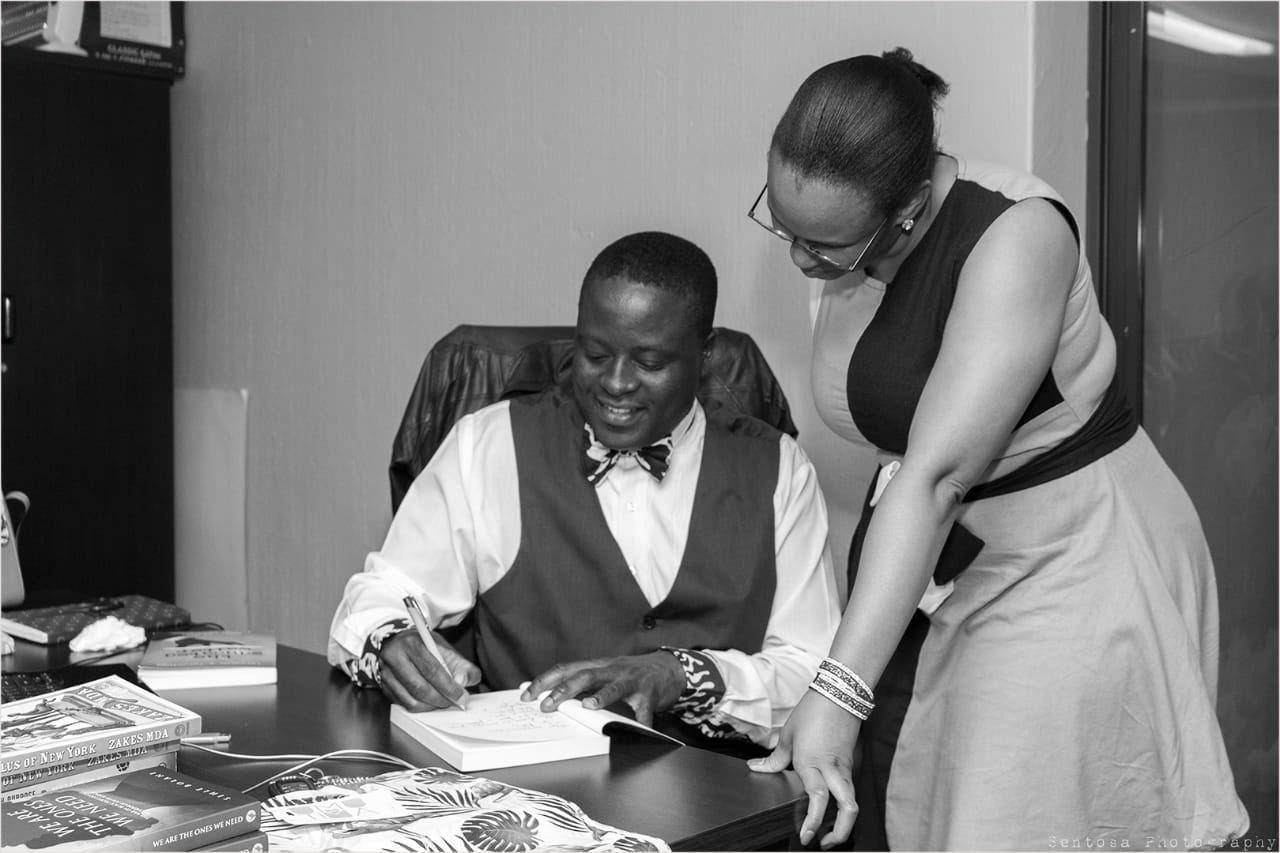THE EDUCATED WAITER
Serving up truths about being a migrant, a student – and that person taking your order

Tafadzwa Taruvinga intended to write a book about migrants who are in positions they shouldn’t be in, mostly due to circumstances. Two years later, he has launched his memoir, The Educated Waiter, telling his own global journey to redefine the student, the waiter and the immigrant.
Tafadzwa Taruvinga would arrive home at three in the morning after waiting tables in Johannesburg. Like clockwork, he would sit down to write. He wrote to remember. He felt that one day the world should know how the restaurant boss treated the employees.
During those early-morning sessions, he could never have known that a decade later those notes would be stitched together as The Educated Waiter – Memoir of an African Immigrant. He couldn’t have dreamed that he would launch it in South Africa and Zimbabwe to audiences sharing tears and laughter with him as they related and empathised.

Taruvinga poses with audience members after the launch of his book at Exclusive Books in Rosebank Mall, Johannesburg on 3 October 2019. Photo: Supplied.

Tafadzwa Taruvinga signs a copy of his memoir The Educated Waiter in Harare, Zimbabwe on 19 October 2019. Photo: Supplied.
For Taruvinga, becoming a published author is a “placeless endeavour” – something racists, classists, xenophobes and stagnant government systems can’t seize from him. He was able to express himself and shed his load through through telling his story, but he says not everyone in his position is as lucky. He says his story is also theirs, and it’s time the world listened.
Taruvinga came to South Africa from Zimbabwe to study economics at Rhodes University. He took an unexpected hiatus after his second year to waiter in a restaurant and manage a guest house in Makhanda. He hoped that by the end of the year he would have enough savings to return to his studies.
With financial help from a guest, he managed to finish his degree. He worked in marketing in Germany and Dubai, has self-published four other books and pursued postgraduate studies. However, he is still waiting for his South African work permit three years after applying for it.
This endless cycle of waiting inspired one interpretation of the title. “I was talking about this [the title] with my mother recently and we came to the same conclusion that the other meaning for The Educated Waiter is that I have been waiting for a long time after being educated and graduating to get to this point where I am published and can be recognised as an author. I’ve been educated but I had to wait for the pinnacle of my story.”
One of the foundational periods in the book is the year he had to work in hospitality to pay for his studies. He remembers that time with mixed emotions – it was an intense period of personal growth. He learnt to cook from the chefs in the restaurant – they taught him to make his first omelette. He managed a five-star guest house. He read more and watched more films.
But it was not without daily adversity.
“One of the opening chapters speaks to the ‘Elegant Little Restaurant’ and how one of the managers makes an assumption that I should be able to clean toilets because I am a migrant, but also that because I’m a black person it should almost come naturally to me to accept that.”
Even outside of the workplace he felt choked.
“I was in the same town where my fellow students in first and second year were continuing to third year – and I wasn’t. I felt a bit alienated in that way and out of the system,” he says.
“And, you know, Grahamstown is a very small town – if you are a migrant, chances are you are a student. In that sense, I felt out of place. I quickly detached myself from the university crowd so I could feel comfortable in my own space.”
This seminal year and his experiences in hospitality afterwards were part of what motivated him to write the book. He knew others had experienced what he had, and he believed someone needed to add the voice of the waiter to the conversation about racism, xenophobia and classism in South Africa.
“There are no laws protecting waiters, especially African migrants. For example, if a South African employee is disgruntled with how they are treated in the workplace, they have the CCMA, the department of labour and trade unions at their disposal, which can quickly come to their rescue.
“The migrant doesn’t have that luxury or opportunity. For the migrant, it’s make or break. Either they survive and have something to eat or not. Either they can have a job or not. There’s no recourse that protects them when they are in that sort of workplace.
“And, of course, some of the outcry from South African employees is that migrants take over jobs in the hospitality industry. But maybe it’s because they don’t have as much recourse and therefore employers can exploit them, and therefore they take what they can get as opposed to seeking legal retribution.”
He says he wrote the book to address racists, xenophobes, classists and government officials too. He wants to show them the effect they have on their “victims” and that they should take a moment to consider the struggles of migrants.
After almost two decades of struggle against the system, he launched his book in Cape Town, Johannesburg and Harare. During question time at all three launches, the interviewer had to gently remind the audience that they were looking for questions and not statements from the floor.
“I think people felt compelled to tell their own stories. People in the audience teared up and yearned to be heard. They viewed my book launch as a platform through which to vent, and rightly so because they’ve bottled up so much. I am one of the fortunate few who have been able to express myself and shed the load and pain. A lot of people don’t have an outlet. That’s the reality on the ground.” DM




